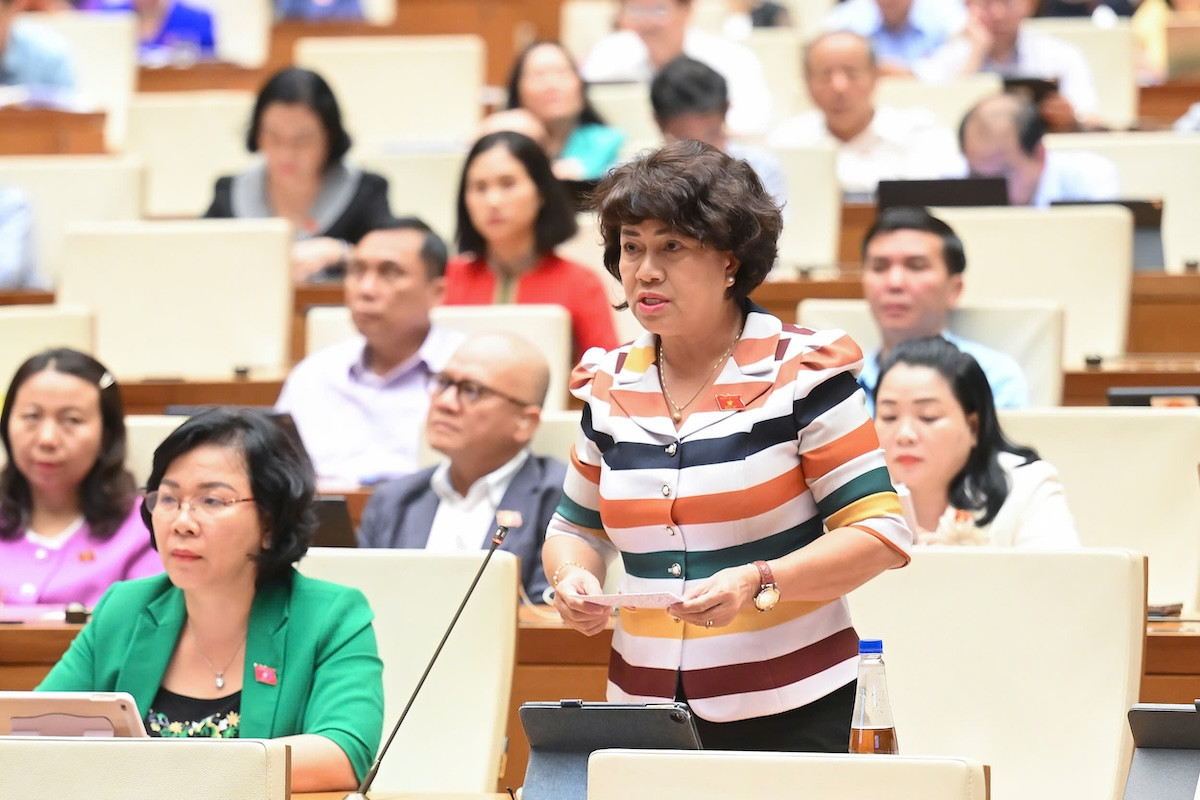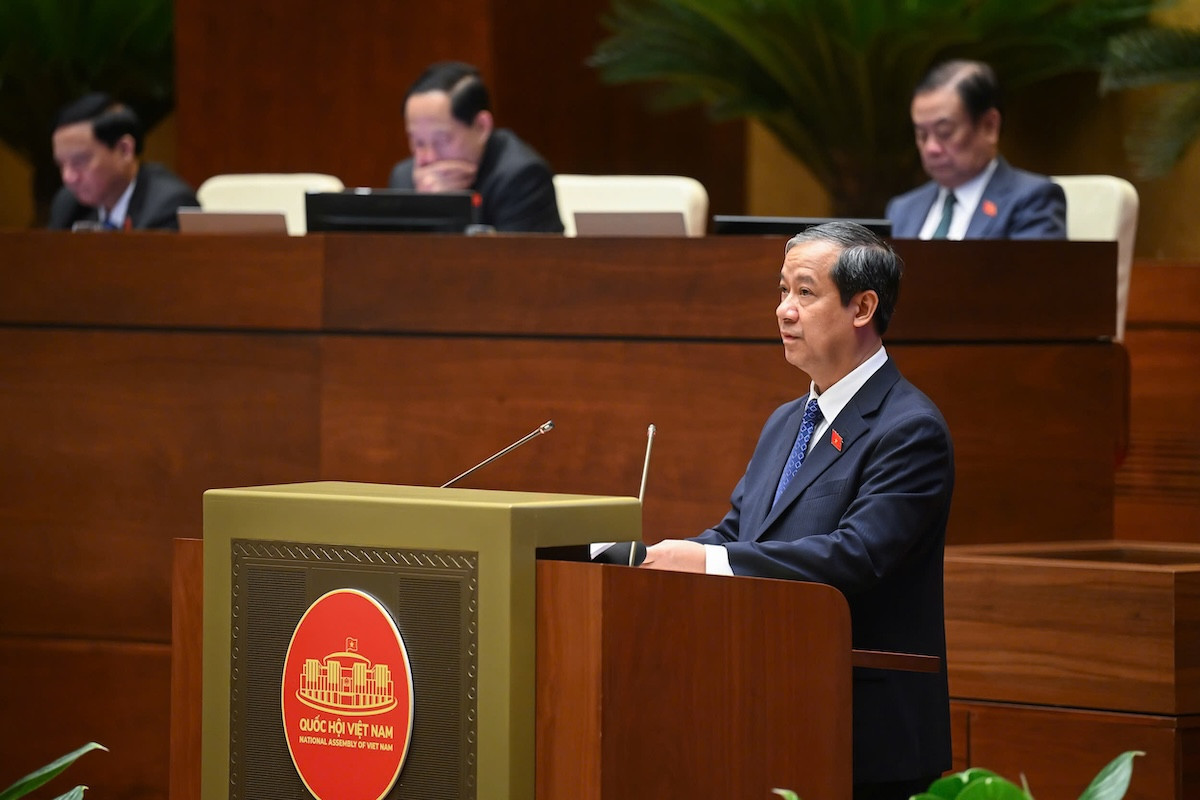At a National Assembly session on June 19, delegate Nguyen Thi Le Thuy from Ben Tre expressed concerns about the effectiveness of Circular 29, which regulates private tutoring in Vietnam. She pointed out a disconnect between the policy and its implementation, noting that this gap has significantly impacted schools, teachers, parents, and students.

Evaluating the impact of private tutoring policies
Delegate Nguyen Thi Le Thuy argued that Circular 29 is not delivering its intended results, with noticeable discrepancies between policy intent and real-world outcomes. She questioned whether the approach to developing these regulatory documents is flawed and asked what comprehensive solutions exist to improve oversight of private tutoring in the future.
In response, Minister of Education and Training Nguyen Kim Son stated that policies can only be effective when implemented consistently across all levels of government and sectors.
“If a regulation is sound but local authorities fail to fulfill their responsibilities, its impact will certainly fall short,” Minister Son emphasized.
He explained that Circular 29 outlines responsibilities for all stakeholders: the education sector, provincial and local governments, schools, teachers, and others. In practice, several localities have actively enforced the regulation through inspections and deployment, with positive results in many areas.
“When the ministry conducted inspections after the circular's issuance, we found that many regions had implemented it well,” he said.
“It would be unfair to claim the policy failed nationwide, as some provinces and cities have shown commendable efforts. To ensure better implementation, we need commitment from all localities and levels of government,” he added.
Minister Son also noted that since the regulation only took effect on February 14, it may be premature to judge its effectiveness definitively.
Teacher salaries remain insufficient

Minister of Education and Training Nguyen Kim Son. Photo: National Assembly
Addressing the widespread nature of private tutoring, Minister Son acknowledged that a key issue is the inadequacy of teachers' salaries.
He also cited a shortage of classrooms, especially in major urban areas and densely populated zones, where high school entrance exams can be even more stressful than university admissions.
Additionally, some parents lack confidence in the regular school curriculum or are dissatisfied with their children’s academic performance. Meanwhile, some school principals and teachers fail to fully deliver the prescribed educational content during official school hours.
“There is no one-size-fits-all solution. Tackling this issue requires a comprehensive and integrated approach,” Minister Son stated.
In response to delegate Nguyen Van Manh from Vinh Phuc, who asked whether refusing voluntary tutoring contradicts the newly passed Teacher Law, Minister Son clarified that both the Teacher Law and Circular 29 strictly prohibit coercing students into extra lessons. Therefore, such refusals do not conflict with legal regulations.
He emphasized the importance of guiding students to study independently and use their time effectively during optional sessions, rather than assuming that every student request for extra classes must be fulfilled.
“We must preserve childhood for our children. They need time to play and explore other learning opportunities - not just study constantly,” he said.
Concerns over enrollment practices at non-public universities
Delegate Pham Van Hoa from Dong Thap criticized non-public universities for allegedly inflating their enrollment quotas to increase revenue, while neglecting training quality. This, he said, has led to many graduates being unemployed or abandoning their fields of study. He called on the education ministry to identify the root causes and suggest remedies to ensure students secure stable jobs after graduation.
In response, Minister Son asked delegate Hoa to clarify the sources of his data, noting the need to verify the origin and accuracy of statistics. “Otherwise, non-public institutions might feel unfairly criticized,” he remarked.
He acknowledged that while some non-public universities do engage in mass recruitment, others rank among the top 1,000 institutions globally.
The education ministry has taken action by imposing administrative penalties on universities that exceeded their capacity-based enrollment limits. Under current policy, quotas are calculated based on institutional capacity, and exceeding those limits attracts strict penalties.
The minister emphasized that the government does not encourage schools - whether public or private - to prioritize quantity over quality. He stressed the importance of equality and development opportunities for private institutions, provided they meet strict quality standards to ensure students have good employment prospects.
The Vinh